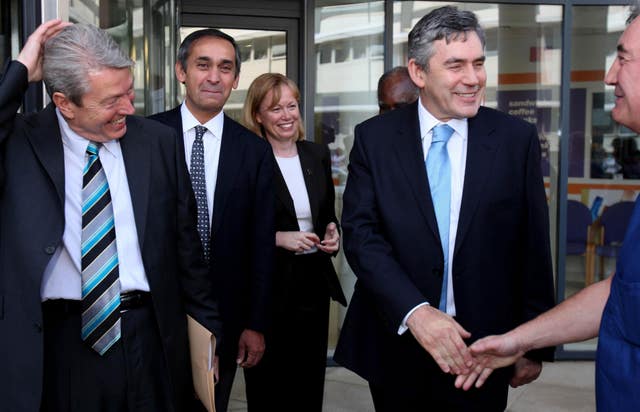
The hard-hitting review into the NHS in England is not the first conducted by Lord Darzi.
The eminent professor also helped the previous Labour government examine how the NHS could improve the quality of care patients receive.
The 64-year-old made his name as a leading expert in keyhole surgery but went on to become an eyebrow-raising appointment in Gordon Brown’s “government of all the talents”.

He was made parliamentary under-secretary of state at the Department of Health in the House of Lords in June 2007 when Mr Brown gathered his first set of ministers around him.
Appointed with a raft of other figures from outside politics, it was hoped he would bring expertise from a long career in the NHS to government.
One of his first duties was to lead a wide-ranging review on the future of the NHS.
The results of the year-long project, High Quality Care For All, were published in June 2008 and led to the NHS becoming the first health system in the world to systematically measure, record and openly publish the quality of care it achieves.
But he did not dispense with his blue rubber gloves for good.
In fact Lord Darzi of Denham said he would work Monday to Thursday as a health minister – being paid for three days – and continue to work as an NHS surgeon, unpaid, on Fridays.
He pledged to stay on the “front line” and said it was a “privilege and honour” to be able to work in the Brown administration.
Lord Darzi stepped back from his government role in 2009 to focus on work as a surgeon.
"I've worked in the NHS for more than 30 years, but I've been shocked by what I've found during this investigation."
Professor Lord Darzi's diagnosis of our NHS 👇https://t.co/xYE1Zlrg2z pic.twitter.com/hdsi6tPzuV
— Department of Health and Social Care (@DHSCgovuk) September 12, 2024
Ara Warkes Darzi was born in Baghdad to Armenian parents displaced by the Armenian genocide.
He studied medicine at Dublin’s Trinity College after leaving Iraq as a teenager.
His medical work has included helping pioneer new techniques for making operations less invasive, including surgery for cancer patients, and tutoring in minimal access surgery at the Royal College of Surgeons, where he set national guidelines for education and training in this field.
One of his passions has been pushing forward techniques that cause the fewest complications for patients.
His team developed the use of surgical robots and image-guided surgery, and called for more research in this area.
He was one of the first to use the “Da Vinci” robot to help with surgery, and the first in the UK to trial the use of the Remote Presence (RP-6) “Robodoc” system, which allows doctors to see and examine patients from anywhere in the world.

Lord Darzi also helped develop new training methods involving the use of virtual reality to allow surgeons to practise their skills.
He was knighted in 2002 for his services in medicine and surgery and made a life peer in 2007.
Lord Darzi, a member of the Queen’s Privy Council since 2009, sat as the United Kingdom’s global ambassador for health and life sciences until March 2013.
Most recently, he was professor of surgery at Imperial College London’s faculty of medicine.
In the 2016 New Year honours, he was awarded the Order of Merit for services to medicine.
When the incumbent Government took office, Lord Darzi was once again asked to straddle his life in medicine and politics and asked to perform a rapid review of the state of the NHS in England.
The hard-hitting 142-page report concluded that the NHS is “in serious trouble”.
The review, completed in nine weeks, diagnosed the problems in the NHS in England and sets out themes for the Government to incorporate into a 10-year plan for reforming the health service.


Comments: Our rules
We want our comments to be a lively and valuable part of our community - a place where readers can debate and engage with the most important local issues. The ability to comment on our stories is a privilege, not a right, however, and that privilege may be withdrawn if it is abused or misused.
Please report any comments that break our rules.
Read the rules hereLast Updated:
Report this comment Cancel